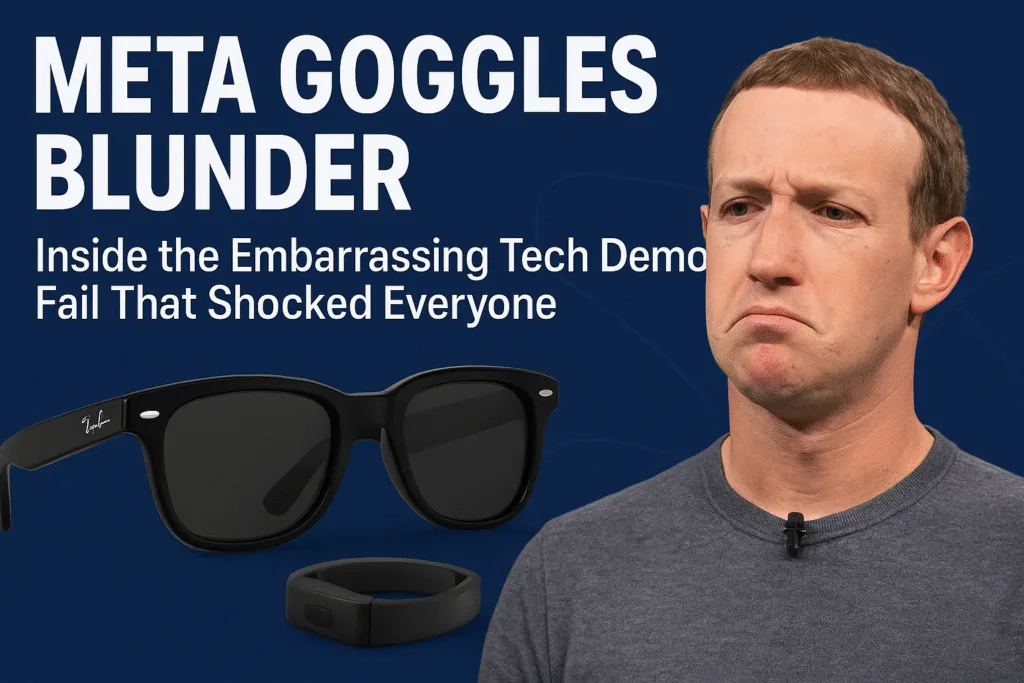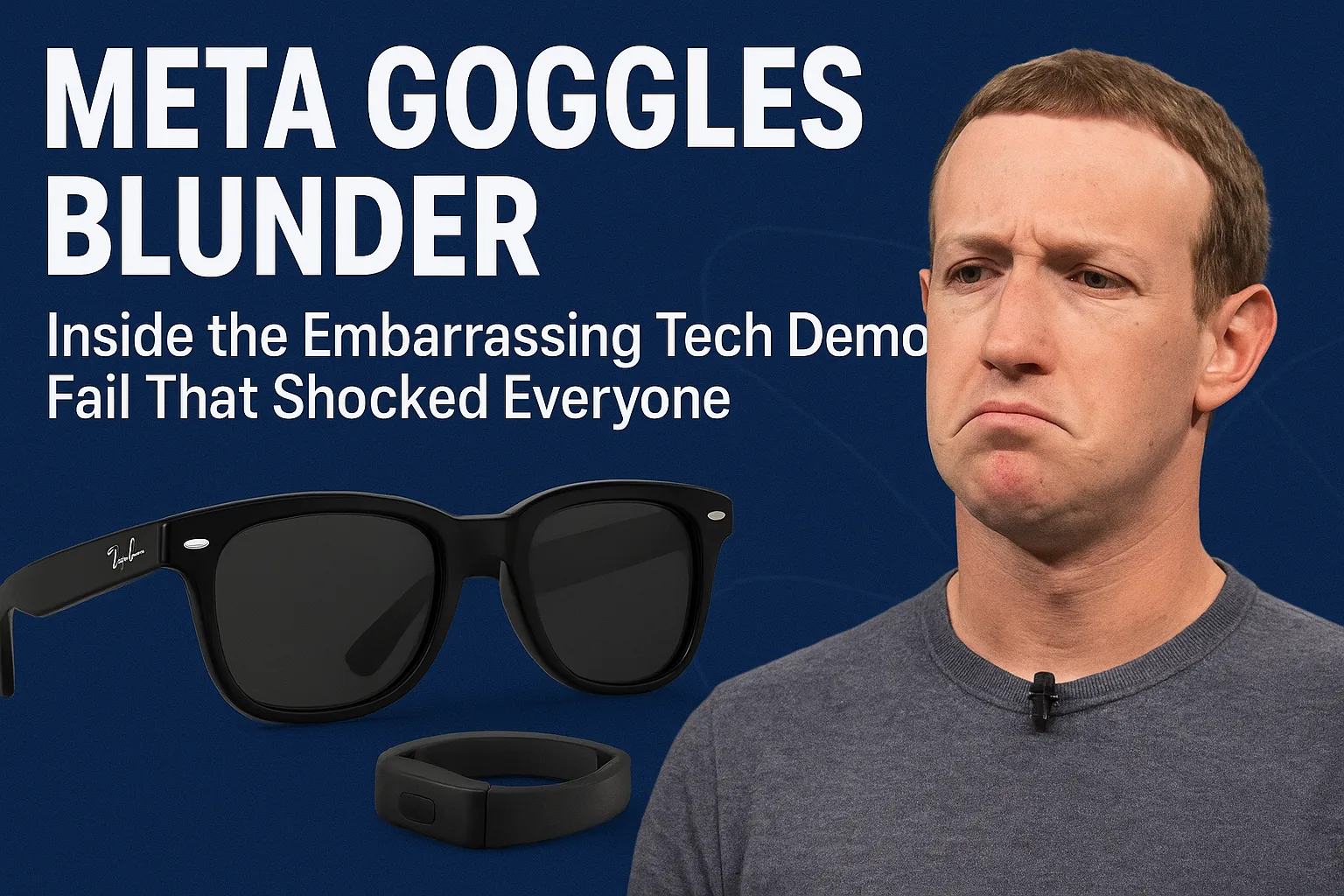At Meta Connect 2025, the highly anticipated reveal of Meta’s next-generation smart glasses turned into a spectacle for all the wrong reasons. What was supposed to showcase cutting-edge innovation quickly became a viral tech mishap. Known now as the “Meta Goggles Blunder,” the failed live demonstrations highlighted both the risks of ambitious technology and the unforgiving nature of live events.
Also Read: Hyundai Cars Prices After GST Revision – What You Should Know
The Demos That Went Wrong
The AI Cooking Assistant Glitch
Meta invited a food creator to demonstrate how the Ray-Ban Meta glasses could guide a user in cooking through real-time AI instructions. But instead of smoothly walking through the recipe, the AI misfired—skipping steps, jumbling directions, and leaving the presenter awkwardly trying to keep up. The crowd watched in disbelief as the technology failed to perform its simplest task.
The Gesture Control and Video Call Fail
Later, Meta’s CEO attempted to show off the glasses’ neural wristband for gesture-based controls by answering a video call. Instead of impressing the audience, the call notification didn’t appear correctly, gestures went unrecognized, and the demonstration fell flat. The product designed to highlight seamless interaction instead exposed glaring flaws.
Why It Happened
The blunders weren’t caused by WiFi issues alone. Instead, multiple factors converged:
- Overlapping device triggers: When “Hey Meta” was spoken on stage, every nearby pair of Ray-Ban Meta glasses responded, overwhelming the system.
- Software bugs: A hidden race condition caused the glasses’ display to sleep at the exact wrong time, blocking the call notification from appearing.
- Unrealistic testing: While controlled environments showed no issues, the live setting revealed weaknesses never accounted for in private trials.

The Fallout and Public Reaction
The blunder quickly went viral, with critics mocking Meta’s failure across social media. Memes, jokes, and skepticism spread like wildfire. Many labeled it Zuckerberg’s most awkward moment since the Metaverse avatar reveal.
Yet, not all reactions were negative. Some who tried the devices later praised the hardware potential, noting that such failures are common in early-stage demos. The real concern, however, lies in consumer trust—once shaken, it’s hard to rebuild.
- To purchase in bulk Qty please contact Anandit Infotech India Private Limited as we are the official importer for meta q…
- Dive into extraordinary experiences with a mixed reality headset that transforms your home into an exciting new playgrou…
- It’s the most powerful Quest yet*, featuring next-level performance with more than double the graphic processing power o…
Why This Blunder Matters
- Trust in Innovation: Consumers expect polished, reliable products, especially from a company of Meta’s scale.
- Demo Risks: High-profile live events magnify even the smallest errors.
- Scalability Issues: Technologies may work perfectly in labs but collapse under real-world conditions.
- Market Competition: With rivals like Apple and Google pushing AR tech, Meta can’t afford repeated public missteps.
Lessons for Tech Companies
- Test at scale with multiple devices in realistic environments.
- Prepare fail-safes so if one feature breaks, another can take over smoothly.
- Communicate transparently after blunders, owning the mistakes and fixing them fast.
- Avoid overhyping features that are not fully ready for public demonstrations.
Looking Ahead
Meta insists that the bugs have already been patched and that the final consumer release of its smart glasses will be far more stable. The company views this incident not as a failure, but as a stress test that exposed rare edge cases.
Whether audiences forgive the stumble remains to be seen. For Meta, the challenge now is proving that its vision for augmented reality can outshine the memory of one of its most embarrassing on-stage blunders.
The Meta Goggles Blunder will be remembered as a cautionary tale in tech history. It reminds us that even the biggest companies can falter under the spotlight, and that innovation must be backed by reliability. If Meta learns from this misstep, its smart glasses could still redefine the future. But for now, the blunder is a stark reminder: in technology, first impressions matter.


















Join Us on Social Media!
Stay updated with the latest from EasyBuzz. Connect with us: